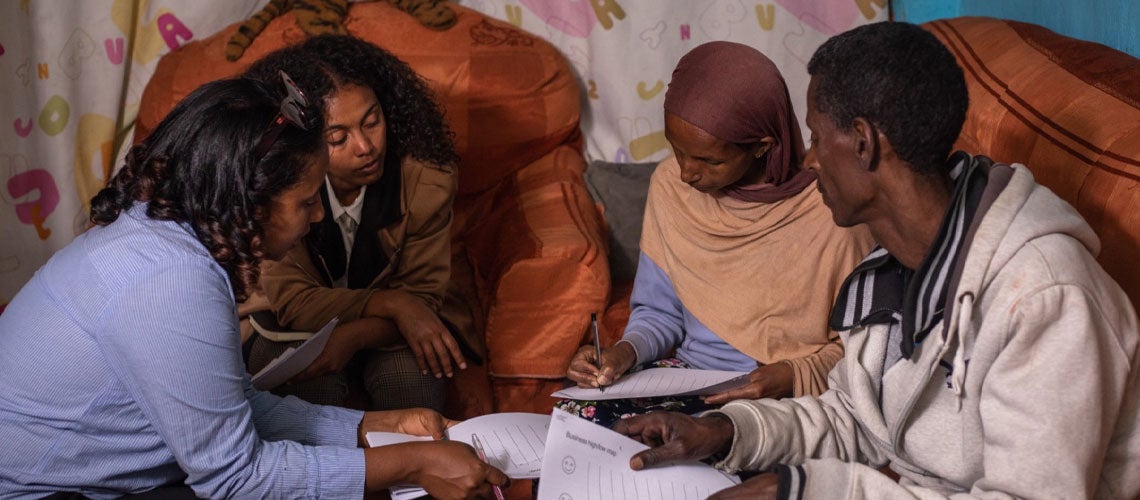 Woman shop owner in Ethiopia. Photo: Tewodros Emiru / Impala Communication
Woman shop owner in Ethiopia. Photo: Tewodros Emiru / Impala Communication
When it comes to entrepreneurship, Habtamu Tafesse is usually the one doing the talking. As a Business Studies teacher at one of Addis Ababa’s public high schools, lecturing to budding entrepreneurs comes with the territory. However, it was listening to the words of an entrepreneur that recently changed his view on the subject – not least because the entrepreneur in question is his wife.
Habtamu’s aha moment came from attending a couples-based business training with his wife which emphasizes communication between spouses. The couples-based training program is targeted towards existing women entrepreneurs and features a curriculum developed by the World Bank’s Africa Gender Innovation Lab (GIL) that is implemented by Digital Opportunity Trust (DOT) Ethiopia as part of their ScaleUp! Program for experienced entrepreneurs. To date, more than 500 women have participated in the training across the cities of Addis Ababa, Bahir Dar, Hawassa, and Shashemene.
The couples-based approach builds on research that shows how spousal support (or the lack thereof) influences women’s careers and the success of their business ventures. In Ethiopia, a study found that 83% of married women said their husbands helped in the business in some way, mainly by contributing start-up money. Another study showed that women entrepreneurs in Ethiopia earned the lowest profits when their husbands were classified as “indifferent” to their business. To encourage a more supportive attitude, the training gets the partners talking: activities include supportive listening exercises, co-creating a vision statement, and developing a time wheel that visualizes how much time the two spend on different daily activities. Training sessions are held in the couple’s home or another familiar location.

Another way in which the program differs from traditional business training is the focus on the entrepreneurial mindset. Previous work has shown that women entrepreneurs who attended a mindset-oriented business training earned 30% higher monthly profits than a group who did not attend the training. Attitudinal change seems to have been the key channel of influence, since participants evidenced higher levels of self-efficacy and personal initiative, relative to a control group. The couples-based curriculum therefore includes activities that build confidence and problem-solving strategies alongside traditional modules such as accounting, marketing, and business planning that are tailored to the entrepreneur’s situation.
Habtamu’s wife, Yodit Mulugeta, credits the training with raising her status as an entrepreneur and transforming how her husband sees her business. Other participants tell a similar story. Many women report that they had to persuade their spouses to attend but were willing to persevere because they had important things to share. As the sessions progressed, husbands switched off their phones and began to listen. By the time the training concluded, they had become more aware of their wife’s business venture, could empathize with the challenges she faces, and were more appreciative of her efforts. Some husbands even started consulting their wives for advice on their own companies, while others came up with joint business ideas for the two of them.
While these observations are anecdotal for now, GIL in collaboration with DOT Ethiopia is conducting an impact evaluation of the couple-based business training through a randomized controlled trial (RCT). The results will show whether Habtamu’s experience is representative–and whether spouses ‘talking business’ does indeed lead to more successful, profitable business ventures.
Read the case study: Incorporating Spousal Support into a Mindset-focused Business Training for Women in Ethiopia
Note: All names in this blog were changed to protect the identity of program participants.




Join the Conversation